I Am Strong, but I Am Tired
Written by |
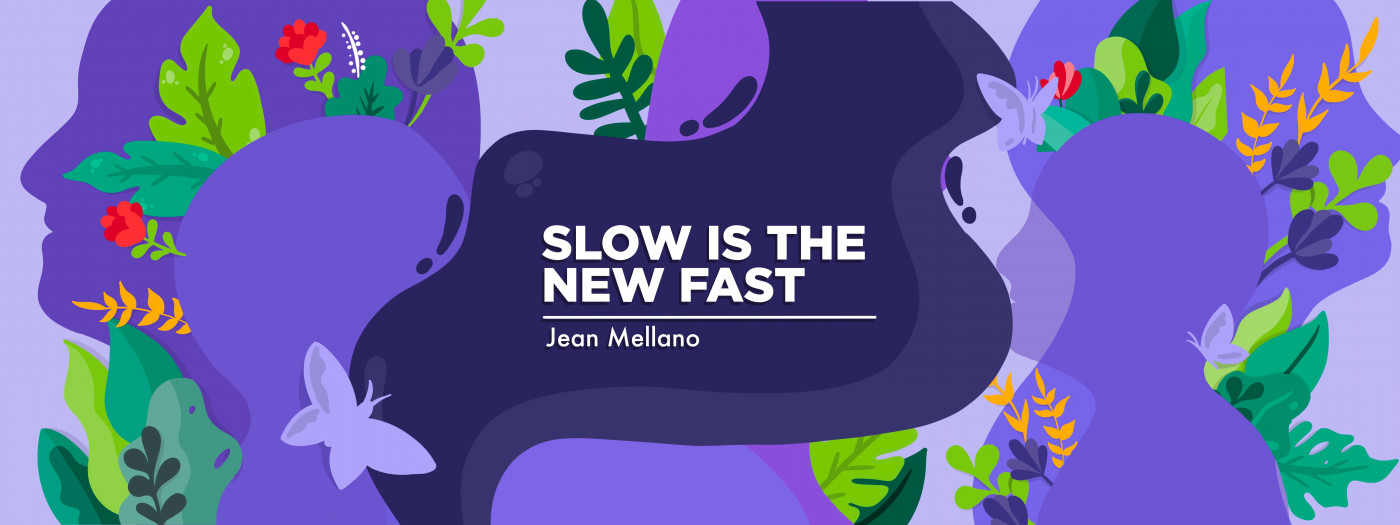
“I think for me, any great art is art which communicates human emotion.” – Greg Lake
Good art evokes emotion. This sculpture, by Simone Wojciechowski, titled “Tired Soul,” represents exactly how I feel:
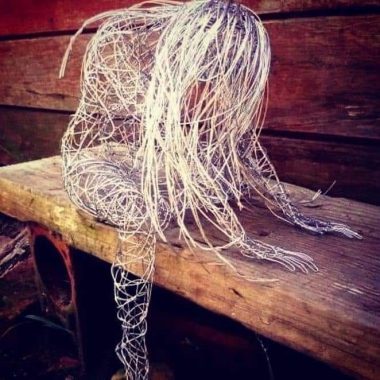
“Tired Soul” by Simone Wojciechowski. (Courtesy of Simone Wojciechowski Sculptures)
Why am I tired?
Lately, I seem to be grasping at straws. I am trying to find a reason besides my incurable and progressive Parkinson’s disease to explain why I feel so horrible. I am always uncomfortable in my own body.
Almost six years after my diagnosis, I still cannot accept that my symptoms are due to Parkinson’s. I keep searching for another reason to explain them, evidenced by my research on hyperparathyroidism.
After all the lab and imaging tests and doctors’ appointments, my hyperparathyroidism diagnosis has been deemed a borderline case. Hence, I need to accept that my extreme fatigue, brain fog, and mood issues are most likely due to Parkinson’s. The disease is progressing, and I seem to have no power to slow it down.
I was strong
When I was diagnosed in 2015, I thought I was invincible and could control and slow down my disease progression with exercise. However, my worsening nonmotor symptoms of fatigue, apathy, and depression leave me between a rock and a hard place. These symptoms prevent me from doing the very things I need to do to improve my quality of life and possibly slow down this disease. What a vicious cycle!
I am still tired
My daily life seems to revolve around Parkinson’s. Planning my day must incorporate when and where I can take my medications (every three hours). Add doctors’ appointments and Parkinson’s-related therapies, and my day seems to be all about the disease. This is wearing me down.
It doesn’t help when people tell me I look fine. Thanks to years of dance training, I have developed a strong sense of body awareness. This means I have a good understanding of my own body. I feel and see changes in myself that others cannot.
More often than not, I fake feeling good. This requires a great deal of energy and effort, both mental and physical.
When well-meaning people comment that there are so many others with Parkinson’s whose symptoms are much worse than mine, I feel awful. When driving their point home by saying others with Parkinson’s would probably love to change places with me, the guilt settles in. However, I cannot compare myself with others; we all have different life experiences, and the disease impacts everyone differently. Only I can feel my symptoms, and I alone must handle the cards I am dealt.
How can I help myself?
I realize I must get out of my own way and dig deeper than I ever have before. Digging deep never came easily to me, but when faced with adversity in the past, I wouldn’t give up. As a dancer, I was able to push myself to do the choreography one more time at an exhausting rehearsal, even though I had been dancing for several hours after a full day at my corporate job.
While biking in the mountains of Mallorca, Spain, during a horrific storm, I was able to return the 10 miles to the hotel on my own, hydroplaning downhill on the steep mountain switchbacks in a pelting downpour with gale-force winds. I dug deep and made it to safety in one piece without crashing.
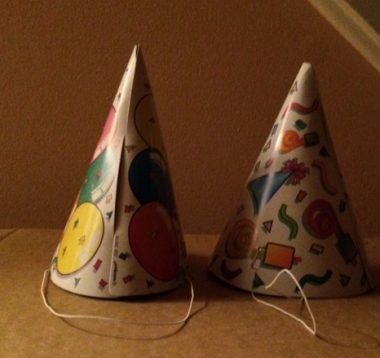
“Pity Party Hats.” (Photo by Jean Mellano)
It is time for me to take off the hats. Firstly, I need to stop feeling sorry for myself. Secondly, can antidepressants improve my mood?
I have been resistant to taking them due to the struggles my late life partner had with them. Lately, loved ones and healthcare professionals have encouraged me to pursue this option. Also, an acquaintance of mine with Parkinson’s told me her life has turned around since she started taking an antidepressant.
Since my late husband passed in 2015, I have been a mental health advocate. I need to practice what I preach. There is no shame in taking antidepressants, and I plan to pursue this path to improve my quality of life.
I will be strong again.
This column has a very different ending than I had originally envisioned. When I started writing, I was so full of despair (and had been for weeks). I had lost all hope.
The feelings of despair and hopelessness that can result from living with this disease are to be expected. Parkinson’s is a formidable adversary and it is understandable to lose hope at times. We are only human.
“No matter how much falls on us, we keep plowing ahead. That’s the only way to keep the roads clear.” – Greg Kincaid
***
Note: Parkinson’s News Today is strictly a news and information website about the disease. It does not provide medical advice, diagnosis or treatment. This content is not intended to be a substitute for professional medical advice, diagnosis, or treatment. Always seek the advice of your physician or another qualified health provider with any questions you may have regarding a medical condition. Never disregard professional medical advice or delay in seeking it because of something you have read on this website. The opinions expressed in this column are not those of Parkinson’s News Today or its parent company, Bionews, and are intended to spark discussion about issues pertaining to Parkinson’s disease.



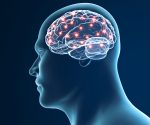


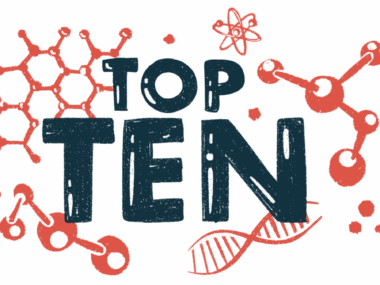
Steve Walsh
Great work Jean. It's can be so frustrating to hear the "But you look good" comment from otherwise well-meaning people. It takes strength and courage to share your innermost thoughts. Thanks.
Thank YOU Steve for your commemts!
Manuel Fernandez
I don’t know what happened but for a very long time all news from Parkinson News vanished completely. Now, after quite some fiddling I did manage to get connected again and the first thing I found was the link to this post of yours. And indeed, it is a post of yours! Full of your self entanglement in your own mesh of pain, fear and forebodings so common to us all. Most certainly familiar to my own feelings, occasionally, in moments of solitude. But only in moments, because at points the curtains open and other actors enter the scene and erase solitude in one go.
That’s what I miss in your touching words Jean. Where are the others? Those willing to walk at least a couple of yards in the miles of your trails. Do they exist? Can’t you reach out for them?
The pandemic and its sequels of forced isolation has driven people to conditions akin to ours, but communities, groups, families have found ways of getting together in ways which never were attempted before. Remote communication is the norm nowadays and it can put us back in contact with friends, family, groups, etc. in ways that become part of our new life. On my weekly remote meetings with my family, dispersed in several countries, I have enriched myself so much by getting to know aspects of their lives I ignored completely. I didn’t know what my brothers and sisters had gone through in the decades of absence and I am so happy to have met now, always remotely, so many nephews, nieces and loads of young relatives whose existence were not registered on my family consciousness. And I so much look forward to these meetings, as much as other meetings with friends I had not seen for 40 or 50 years. As said, my life, my miserable life of PD sufferer amen of other varied ailments has been awaken by those human contacts, not only in the realm of an enlarged family but also in getting back in touch with friends and colleagues that I had not seen for ages. Just yesterday a former history teacher friend got in touch with me asking whether I could join a class that was discussing topics of Chilean history, which I did with so much enjoyment.
I hope I render the idea, dear Jean. Where are the others in your life? Can you reach out for them? All is possible now with remote communication. Not that the others will solve your problems, but you can help solve some of their problems, given the admirable wisdom that your words convey. And if they do not exist, we do and it would be so simple to meet up one of these days and share our solitude and realize how easy it could just vanish.
And I also take every now and then some antidepressants.
With much love,
Manuel
Manuel, Thank you for your kind and thoughtful words. There are others in my life, and I know they are there for me. I am not a big fan of socialization, although I know I need it. I do see a therapist and have started the antidepressant; I need to give it time
Lori DePorter
Great column!
Thank you Lori!
Frawn Helsel
Very well expressed and helps me understand my husband better. However, he has dementia as well and I think this is worse than the Parkinsons.
Frawn
I am so sorry about your husband. It must be so difficult for you to witness his path.
ROBERTA ORZEPOWSKI
You have both the strength and courage to tell your truth. This is never easy I admire you!
I was dx with PD 17 years ago at age 50. I too, have been the recipient of favorable reviews on my appearance and my good fortune that I'm not in "too bad shape"
I generally smile and agree with them while inside my shoes my toes curl into knots as I frantically search the tip of my tongue for their name.
I have two reliable "rules" that help me manage life with PD.
First, I don't take myself or my life too seriously. It's not going to last forever so I squeeze in what joy I can and let the rest take care of itself.
Second, I avoid comparing myself or my life with others. It's unhelpful and unknowable. We all must play the hand we are dealt and are at our best just being grateful that we are still in the game.
That said, I have a psychologist, psychiatrist and neurologist dedicated to keeping me alert, oriented and in a relatively stable mood. I hope no one does this alone.
Hi Roberta
Thanks for your insights. I try not to compare myself to others since we all experience different symptoms, have different reactions to therapies and different speeds of progression. I see you have a good sense of humor which is very helpful in living with this disease
Andrew Bradley
Some of us have no support and have been abandoned by ‘friends’. No choice but to face this alone.
Andrew,
I am so sorry you dont have any support. Have you tried a local PD support group, or perhaps Rock Steady BoxinG? The Boxing is the best thing that has happened to PwP https://rocksteadyboxing.org/find-a-class/
sandra wilkinson
Jean, when I read this post I felt like I was writing it. How alike we are. You give me a feeling of good friends that I am just the same as you and I have exactly the same symptoms of disease. Tired, tired, tired! I have started on an anti-depressant which helped a little bit but it has side effects like increased eating and tiredness. Tiredness - there's that word again! I wish you well on this journey.
Sandra, I wish you as well. IT is going to be a hard journey. The side effects of the antidepressants are brutal. I can always remember someone saying: " if the drugs arent helping, why continue taking them?" The problem is, i dont know if i would feel worse NOT taking them. Therein lies the challenge... and it takes so long before one can assess the efficacy of the drug (whether PD drug or antidepressant), And if it doesnt work, one must be weaned off it.
Deva Boone, MD
Jean,
Thank you for this thoughtful article. I am a parathyroid surgeon and wanted to comment on what you wrote about hyperparathyroidism. I do not know your case, but I am always nervous when someone is told that her hyperparathyroidism is mild and her symptoms can't be due to it. Many doctors confuse mildly elevated calcium levels with mild disease. Unfortunately, the symptoms and severity of primary hyperparathyroidism are not related to how high the calcium levels are (I published a study on this a few years back). Mildly elevated calcium can produce severe symptoms.
Patients sometimes have multiple reasons to feel tired, but parathyroid disease is often playing a role. Sometimes it is not possible to figure out which symptoms are due to parathyroid disease and which are due to something else until after the parathyroid disease is treated - after surgery. If someone has primary hyperparathyroidism, the only cure is with an operation, and while it may not solve all of the patient's medical issues, it usually helps.
Deva Boone, MD
Thank you Dr. Boone for responding. My sister was treated for hyperparathyroidism at the Norman center in Tampa. My neurologist thinks there is a chance my non motor PD symptoms (fatigue, mood) could be exacerbated by hyperpara. I have consulted with some of the top NYC doctors on this disease with my symptoms and history and the evidence points to a borderline case; no kidney stones, PTH has since dropped down since the earlier high values . doctors would have to do exploratory since 4DcT and ultrasound are inconclusive. I will be monitoring my calcium and PTH levels. I think I have to accept that I have Parkinson's and it is progressive.
Is your study published online? I would love to read it if you can post the link
Allen Arnold
Wow! I was diagnosed at 44 and have several other conditions that have made this much worse for me. I’ve always been able to accomplish or push through anything. Somehow I have YET to find a way to push through Parkinson’s. Life truly is hell because in my eyes I’m failing. My girl keeps telling me the things you’ve shared I. Your article but in my eyes I just see me failing everyone else and myself by not pushing through it. Most days I refuse to even admit I have this condition, I wholly block it out. Thanks for sharing your experience, GREAT ARTICLE!
Thank you Allen, I think pushing through Parkinson's is one of the hardest things I have come across in my life. I am happy you have someone in your life to support you. You are NOT failing. PD is a beast
Wanda Kim
Dear Jean, your words resonated with me. I was diagnosed in 2012 when I was 52 but had noticed symptoms a full 10 years earlier, when my late first husband was diagnosed with the cancer that would end up taking his life. I had always lived my life by driving myself. I was comfortable in the strength of my mind to push both itself and my body. With my changing symptoms - both physical and non motor, I found that my drive wasn’t enough. I couldn’t exercise/eat better/detoxify myself out of this. My mood swings frightened me. I had some very dark moments. It took me a while to understand the depth of my anger and the object of that anger. I was angry with myself. I felt that all the things that had led to success in my life - my drive, my stamina, my strength, my very being, had let me down. But I had overlooked the person inside those attributes. I hadn’t recognised myself.
I am now trying to see that person and approach myself with kindness and compassion. It is helping. And it is helping me to regain strength. I guess I never understood that my mind may be strong, but my heart is stronger still.
Know that you are not alone, and your words help so many.
Thnak you Wanda, it is very hard for me to accept I cannot 'fix' myself. I wonder why my drive, strength and determination have left me. I have endured cancer and the death of my life partner, but I cannot seem to deal well with PD and the daily losses
Anne Wray
Thank you for writing. Reading your words brings normalcy to my otherwise over zealous feelings about living another day with Parkinson’s. I tire of trying to hide my symptoms at work and home. I have created my own exhaustion.
Hi Anne
Yes, it indeed is exhausting trying to appear normal
Linda Bramhall
Your article was enlightening and much appreciated. Your bio. is interesting in the mention of symptom onset following a traumatic event, (my experience, as well). Boxing and strength training are helpful. May I suggest that you try table tennis. It has helped me immensely!
Linda
Hi Linda, Thanks for your feedback. I have heard good things about table tennis for PD. I really think it comes down to finding an exercise one enjoys so that they stick with it consistently.
David
Your article is spot on and really well describes that special burden we PD people carry around, trying to look and feel like something we are not. Isolation is something I’ve struggled with frequently in the four years since I was diagnosed (fiftieth birthday present to myself.). I completely withdrew into myself and a very small circle of friends I felt I could trust with this new information. Two years later, as I was mustering up the courage to “come out”, Covid hit the world and we all went into isolation. I felt I couldn’t tell my kids, as they were suffering from Covid isolation and frankly a bit scared themselves. It’s exhausting to carry this facade around daily.
I’m writing this because I want to share that I had a great response to the SSRI anti-depressants. I started taking a half dose daily because I was so wound up about Covid, and my moods were toxic to the household. We have three teenagers and a nine-yr old, and it was extremely challenging to reign in the teens wandering and socializing habits. It was a constant source of tension in the household and there were more than one significant argument about it. I took the Zoloft to just calm down. Not surprisingly, it has enormous positive effect on my feelings about PD. This small does just takes the edge off those feelings and gives me strength and calm to face to see them as something that is happening to me, not something of my making.
I resisted SSRIs for years because I always believed that moods are something we can and should control without chemical assistance. Now that I’m on what are effectively dopamine replacement therapies, the same argument about SSRIs falls flat. Why is it OK to replace the dopamine with pills, but not OK to block some hair-trigger serotonin spikes with the same approach? Let’s face it - our bodies are now living pharmacological testing sites. If it works, then do it. BTW - there are many different kinds of anti-depressants. They all have slightly different biochemistry and delivery systems. Just like each PD therapy doesn’t work on all PD patients, the same with anti-depressants. Just keep experimenting (with low doses) until something fits.
hi David, i did take effexor under guidance of neuro ans weaned up my dosages over a period of seceral months. i felt no change so i weamed off. like eveything else with PD, what works for some will not work for all :-(
Lou Hevly
Hi Jean, I'm sorry to say it's been a while,
I'm witing now to let you know that "La meva vida amb el Parkinson" is on the eve of being published. You may remember that I sent you a translated version of the segments of "Slow is the New Fast" that I incorporated into the book along with my own hopefully pertinent comments. You gave me permission to use these segments and frankly I consider them critical when considering the aspect of Parkinson's that leaves one person with their abilities largely intact, while another person has to make a superhuman effort just to get through the day.
So, would you please email me? I no longer have your email, and feel we should discuss this more thoroughly. I realize we've never met nor even talked on the phone (do you use zoom?), but after re-reading "Slow is the New Fast" from day 1 once again, I certainly consider you a friend.
All the best,
Lou
Joanne Kopman
Hi Jeanne
, I’m Joanne Kopman from the group “Living Alone with Parkinson’s”.
I don’t have your email and hope this reaches you.
I’ll be in southold this wknd
Would love to meet you